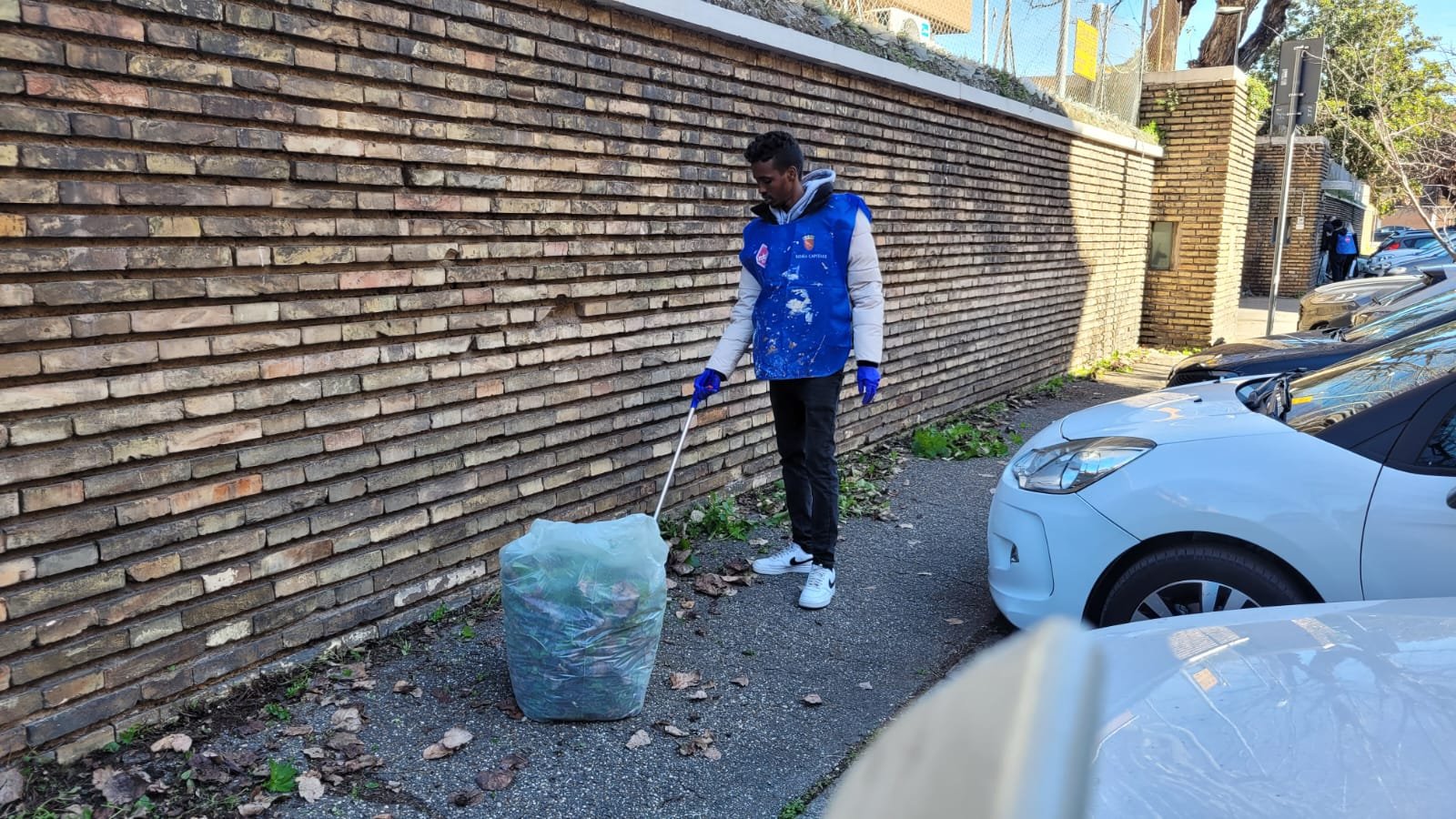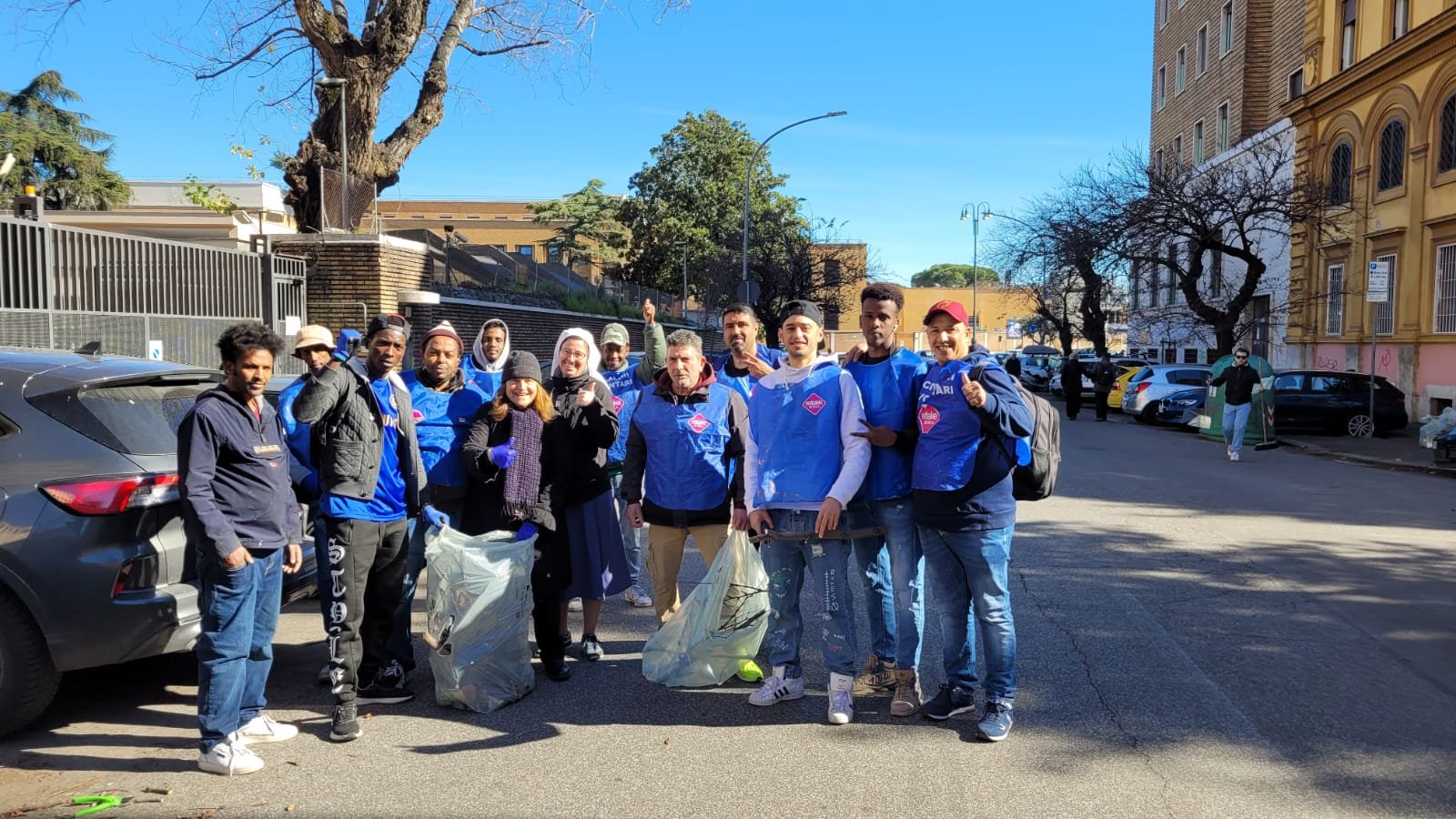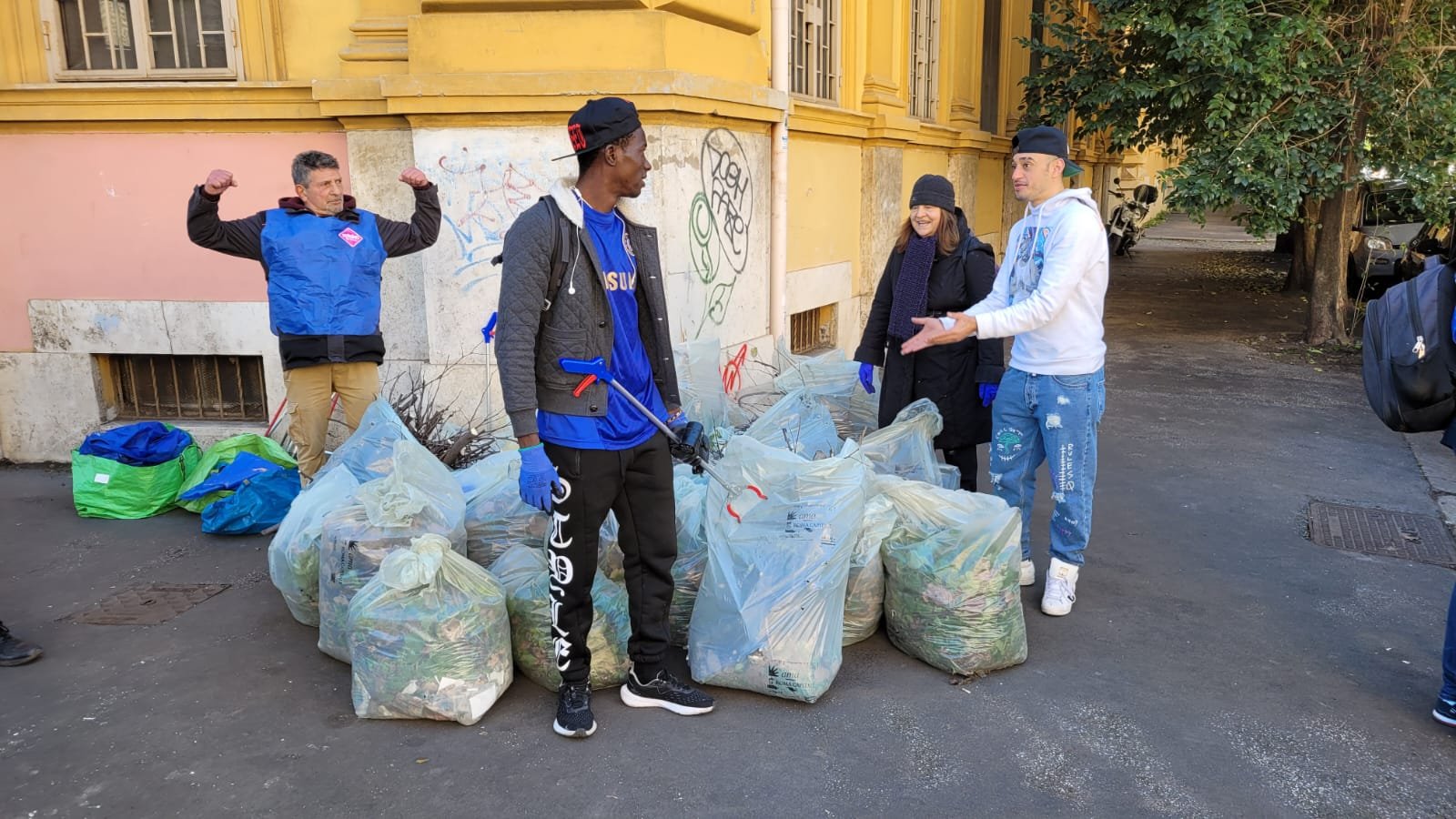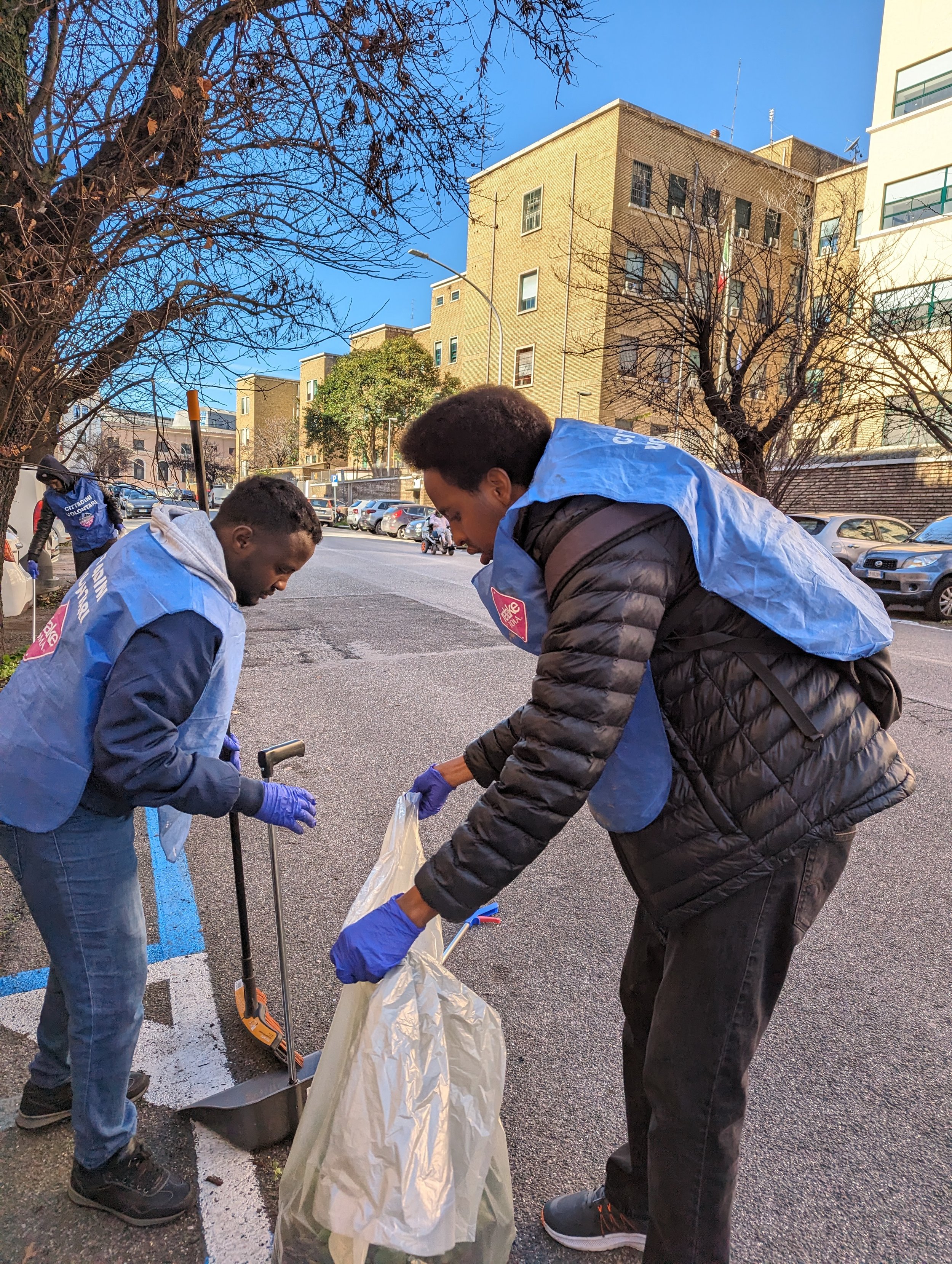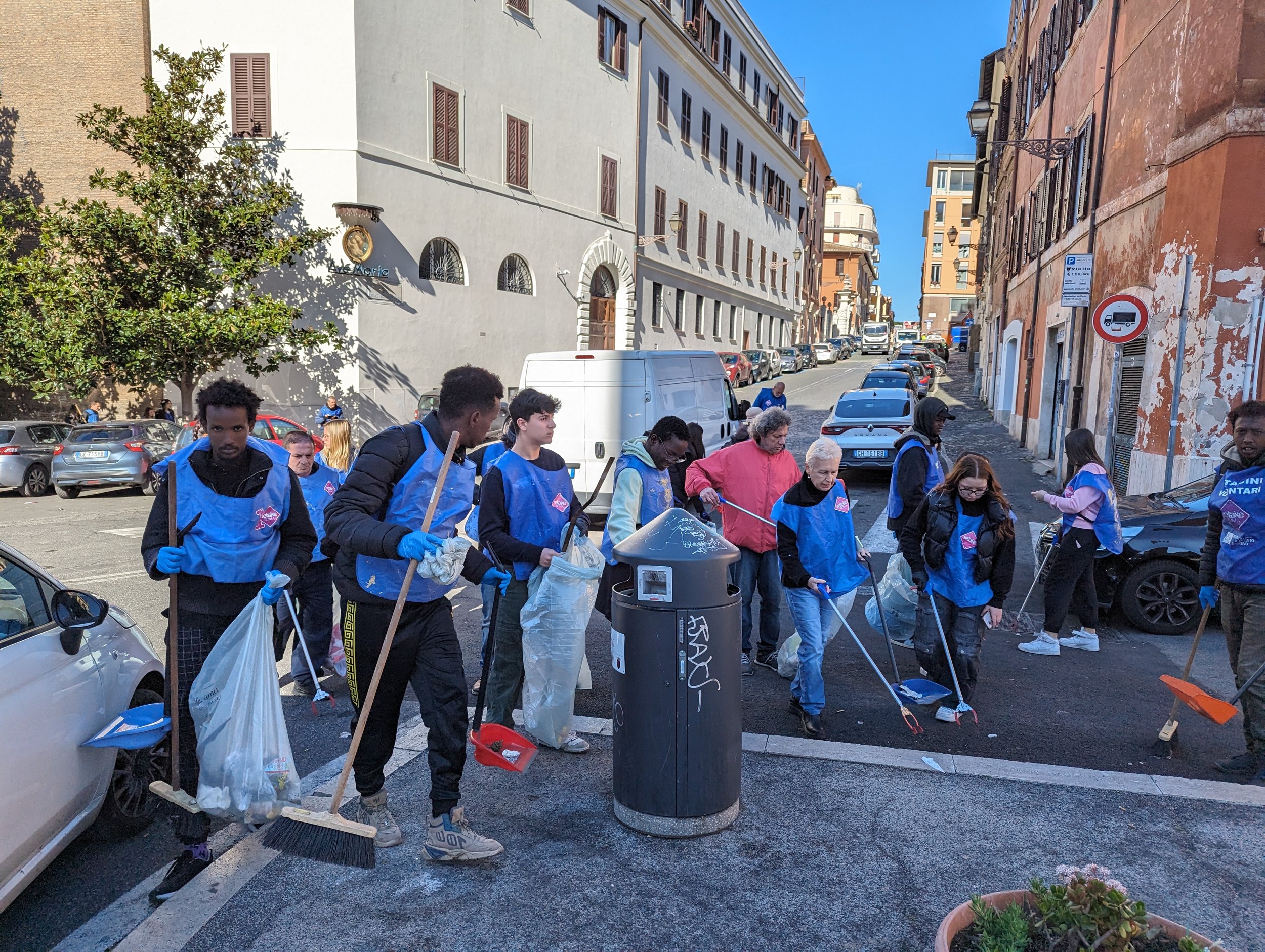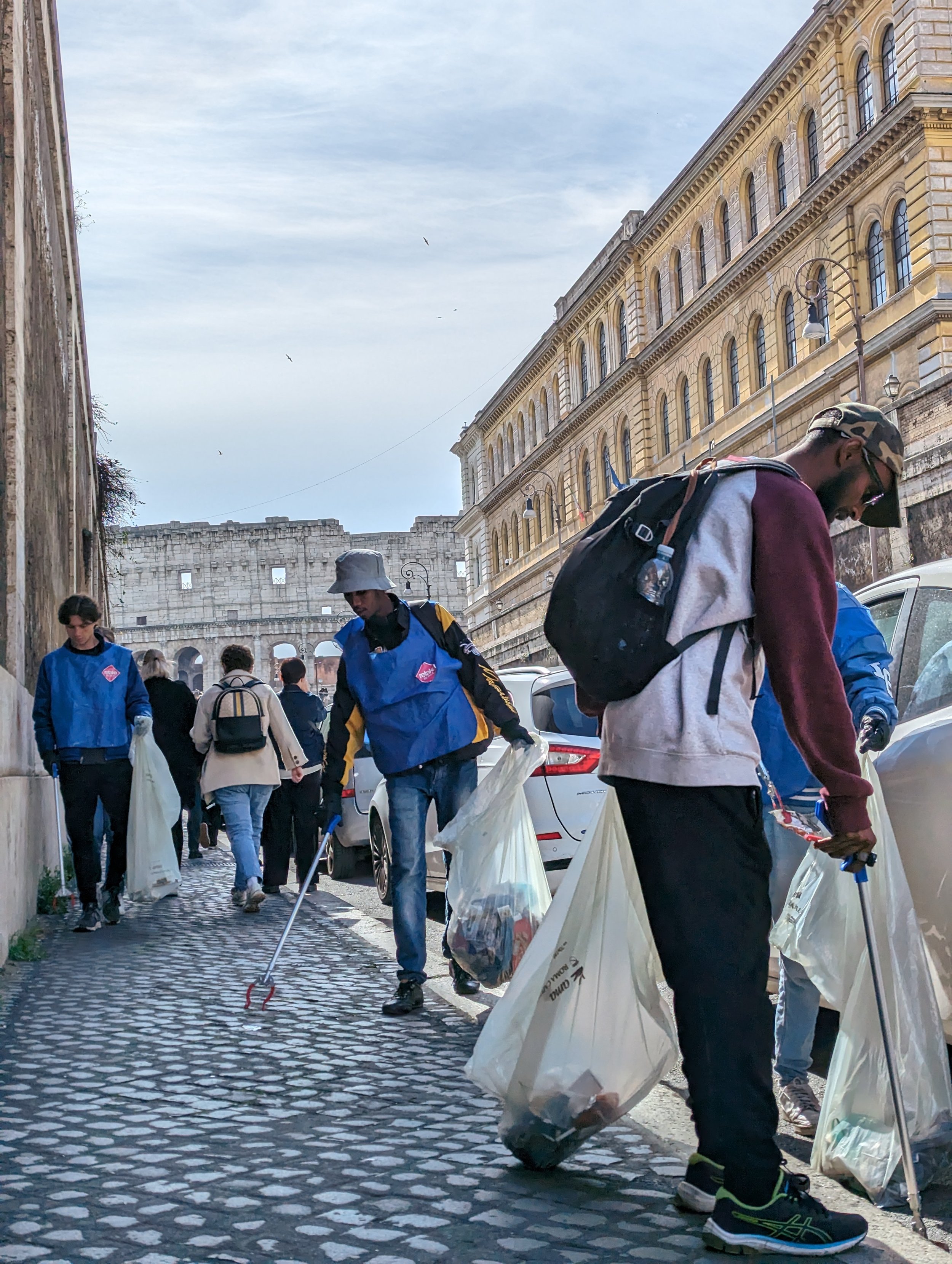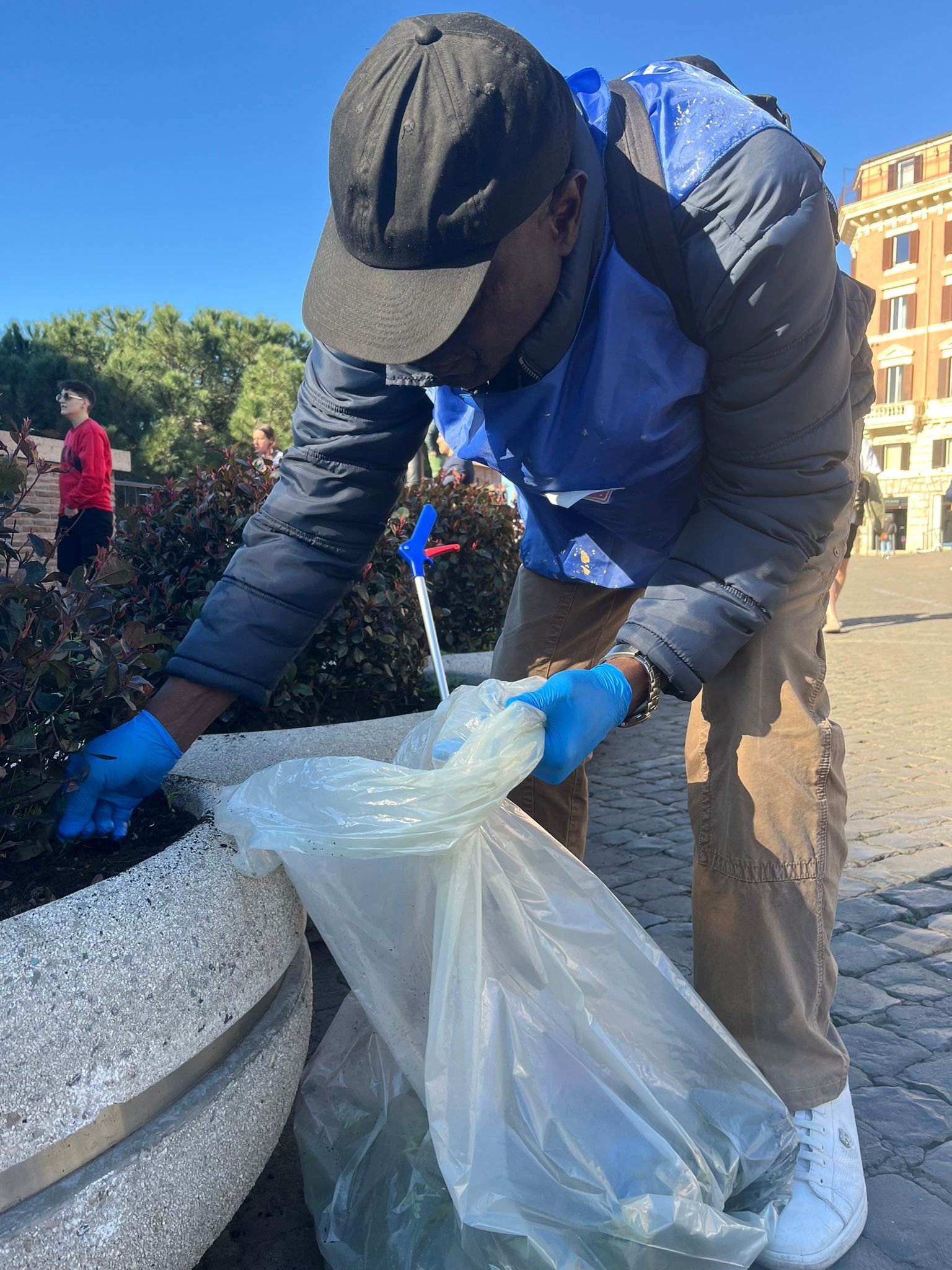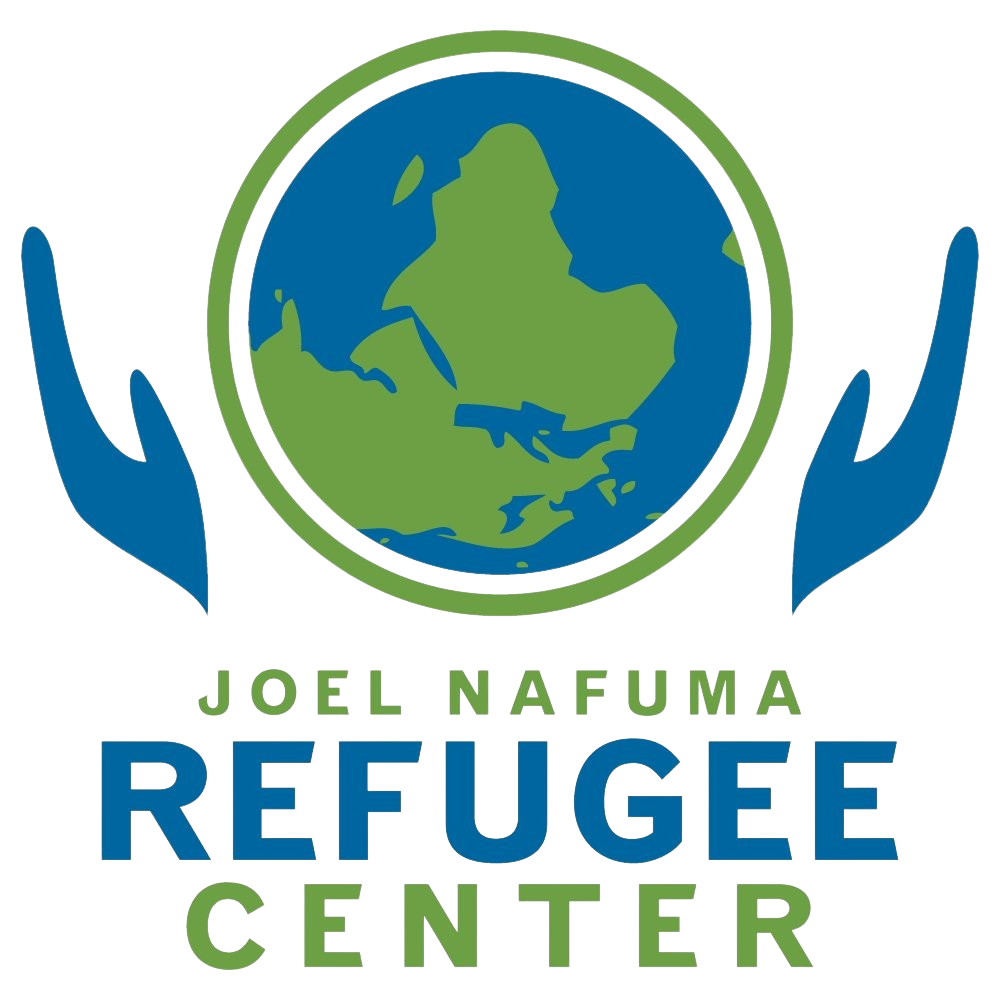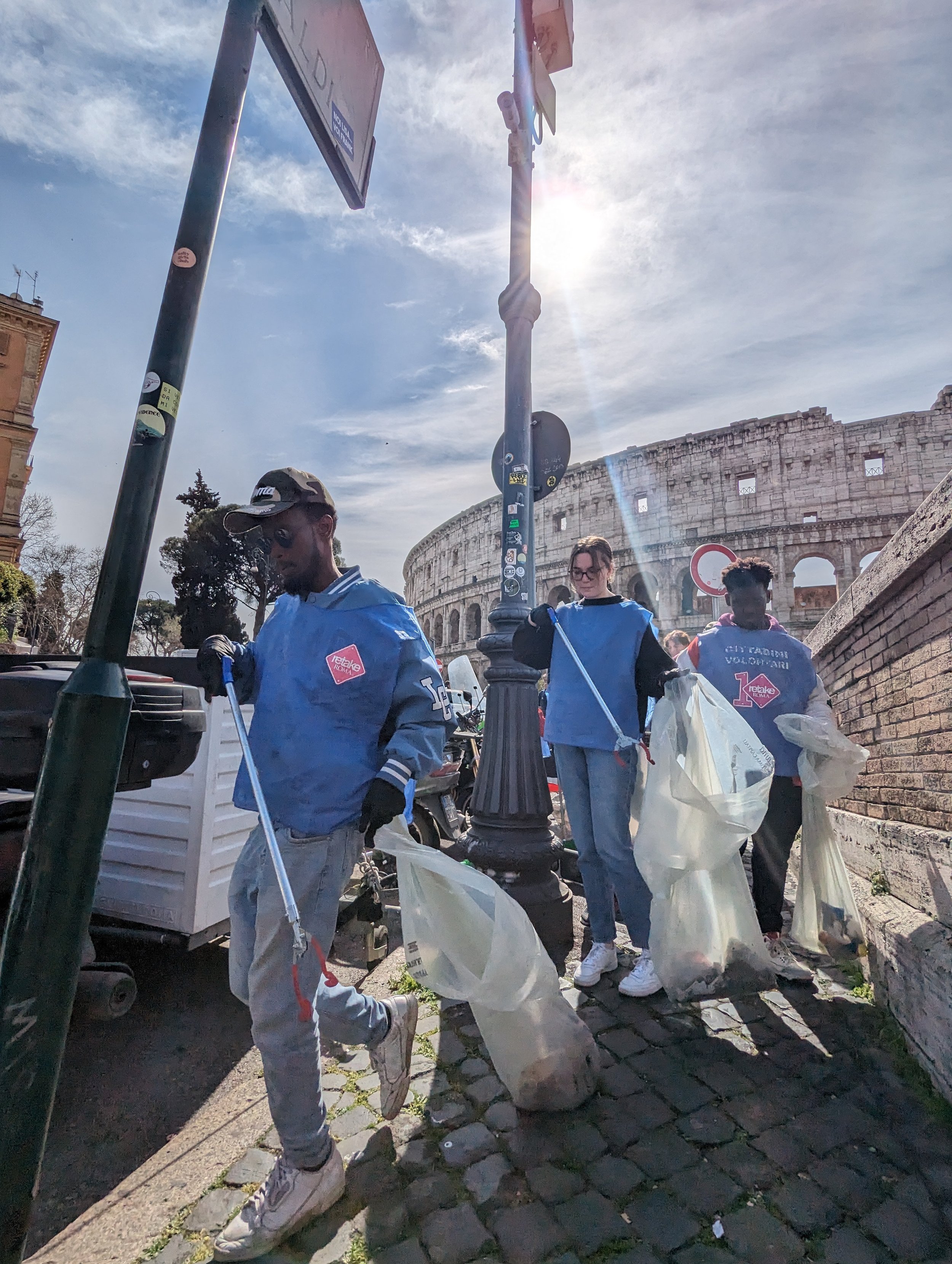
Green Refuge Project
We are grateful to Retake Roma and ItaliaHello for the support and collaboration of the Green Refuge Project.
The Project
The Green Refuge Project aims to address issues of environmental racism and urban decay while empowering refugees through environmental stewardship. The project recognizes the unique challenges faced by refugees in urban environments and seeks to provide them with the tools and resources necessary to participate in the revitalization of their communities. The project will involve a range of activities, including community outreach, educational workshops, and hands-on environmental cleanup efforts.
Partners
Throughout the project, we have collaborated synergistically with our partners, ItaliaHello and Retake Roma.
With ItaliaHello, we continually collaborate on building the social media campaign through meetings, interviews and sharing of photographic material.
With Retake Roma, we organize project activities on a weekly basis, namely the redevelopment of urban spaces with the active involvement of the guests of the Joel Nafuma Refugee Center.
In addition, we established relationships with local high schools (Liceo Classico Cavour and IIS Leonardo Da Vinci), organizing workshops on environmental matters together with the students.
We are also building relationships with "Federtrek", a hiking and outdoor recreation association, to organize a series of guided hikes in local nature reserves.
The Three Components
-
-Monthly educational workshops (for a total of 6 over 6 months) focused on climate change, environmental stewardship, and environmental racism.
-Empowerment through education and recognition of challenges faced by refugees in urban environments.
-Congregants participate in learning and sharing together with refugees.
-
-Together with the team at Retake Roma, weekly community-based cleanup efforts, including identifying priority areas and establishing a schedule for outreach events.
-Provide refugees and community and congregation members with the tools and resources necessary to participate in cleanup efforts, including gloves, trash bags, and other equipment.
-Encourage congregation members to participate in events and provide opportunities for refugees to interact with other members of the community, forging a feeling of connectivity to each other and to stewardship for nature, and how these things are intrinsically connected.
-
-Use a range of communication channels, including social media, community meetings, and educational workshops, to engage with the community and congregation, and raise awareness of environmental racism. Our partner, ItaliaHello will create content that we will use in this context.
-Emphasize and amplify the role and voice of refugees and other vulnerable communities in the fight against environmental racism.
Establishing Sustainable Concern
This project was borne out of a recognition of environmental racism in Rome and the challenges faced by refugees in an urban environment. Many of our guests (up to 70%) are currently experiencing homelessness in downtown Rome. Many unsheltered people in Rome live on the streets, in parks, or in other public spaces in the city centre, and near transit hubs, particularly Termini Train station. Of note, while only 9.5% of Rome’s population is non-Italian, over 50% of those experiencing homelessness in Rome are non-Italian and primarily people of color. Clearly, the numbers reflect the fact that environmental racism is a problem in Rome, with marginalized communities such as refugees facing disproportionate exposure to pollution and other environmental hazards.
According to the European Environment Agency, Rome is one of the most polluted cities in Europe. The city has faced several crises related to trash collection and has struggled to find long-term solutions to the problem. A significant amount of the trash in Rome is illegally dumped or burned, contributing to air and water pollution and Rome has struggled to enforce laws related to waste management and illegal dumping.
Thank you to the Episcopal Church and the Task Force on Creation Care and Environmental Racism for granting us the opportunity to create this project. The Task Force on Creation Care and Environmental Racism endeavors to foster and broaden The Episcopal Church's compassionate, freeing, and life-affirming connection with God, one another, and the natural world.

